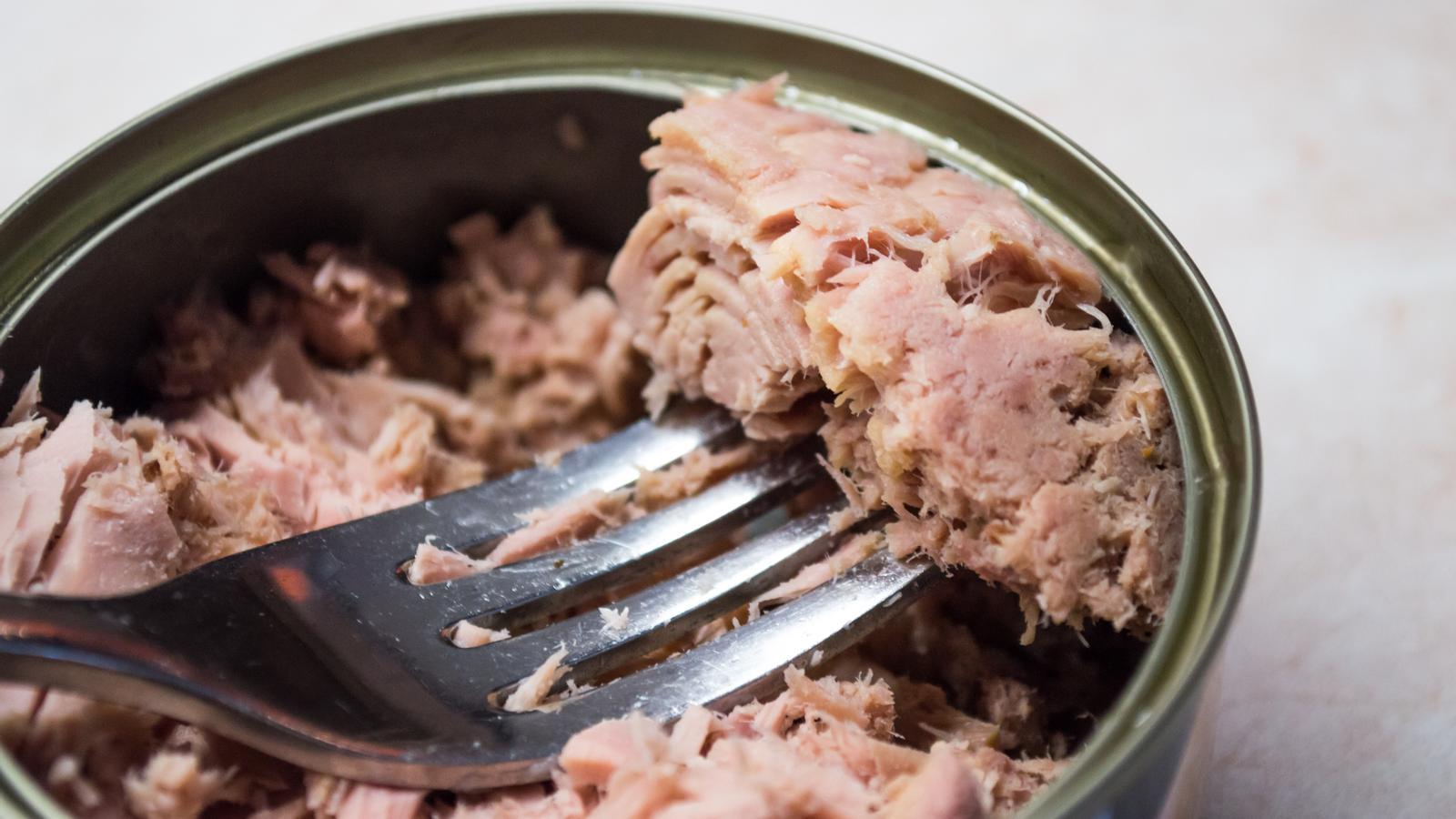What do we eat when we eat a can of tuna?
Ingestion does not replace the recommended portion of fish and should be avoided by children and pregnant women.


When we eat a can of tuna, we're ingesting a portion of the yellowfin variety of this oily fish, usually large. The other two ingredients we're ingesting are oil, which can be either olive oil (in rare cases, extra virgin) or sunflower oil, and salt. In fact, the proportions of salt can be high because it's the ingredient used to preserve the tuna in the can. For this reason, Dr. Pere Gascón states that "a can of tuna doesn't replace one of the three recommended weekly servings of fish." The doctor also warns about the origin of the canned fish. "Often they're not locally caught fish, but quite the opposite," he says.
The dissemination of the study by NGOs Bloom and Foodwatch The measures taken last year have led to school cafeterias in Paris and seven other French cities banning tuna from their meals this year. The study analyzed 148 cans of tuna from five countries (France, Germany, England, Italy, and Spain), and all the samples studied found mercury. 57% of the cans studied exceeded the 0.3 mg/kg limit generally applied to fish, while 10% of the cans exceeded the standard applied to fresh tuna, which is 1 mg/kg of mercury.
The two NGOs, French and German, even indicated which tuna brand they had found in Paris supermarkets that canned tuna with the highest levels: it was the Petit Navire brand, and it had 3.9 mg/kg. A year after the scientists published the results on their NGO websitesFrance has been the first country to respond with a drastic measure, designed to protect children, who are the most likely to be affected by tuna consumption, as it is linked to neurocognitive development.
Prohibition or recommendation
The researcher from the Hospital del Mar in Barcelona, Miquel Porta, declared in the We eat He wasn't so keen on banning it, but he did recommend that the population reduce its intake to once a month. Porta believes that spreading the knowledge that canned tuna should be an exceptional food can encourage the habit of eating it occasionally. For his part, Dr. Pere Gascón recommends "once a week," and always for the adult population. However, for children and pregnant women, the researcher from Hospital de Mar and Dr. Pere Gascón are adamant, as they believe that neither fresh tuna nor the salted canned version should ever appear in meals.
It's all about eating habits. "When we were kids, many of us ate tuna sandwiches," says Dr. Pere Gascón, who recalls a time when canned food lobbyists were good at promoting their products with catchy television commercials. "Even today, they're very powerful lobbyists, with a lot of media pressure, but that doesn't mean the population doesn't have its own information, which comes from caution and prevention," the doctor maintains.
To continue, there is an approved European regulation for cans and food packaging in general, Regulation (EU) 2024/3190, adopted on December 19, 2024, by the European Commission, which prohibits the use of materials containing bisphenol (BPA) or other endocrine disruptors. The law came into force on January 20 of this year, but a transition period was established for the food industry to adapt to it. The fact is that inside the can, there may be a film of a material that may contain endocrine disruptors, which are scientifically known to be mistaken for hormones by our bodies and therefore interfere with real hormones. In the case of bisphenol (BPA), once ingested through food packaging, they can bind to hormone receptors., such as estrogen, and make them act like a natural hormone and, therefore, give them a biological response. And then, to continue with the example, it would affect sexual development. "There is a lot of scientific evidence about endocrine disruptors, and in recent years, it has been linked as a hypothesis for the cause of advanced menarche, the first menstruation in girls exposed to these chemicals," says physician Pere Gascón.
Beyond endocrine disruptors, which the industry is working to eliminate by law (it had already reached baby bottles), the conclusion is that canned tuna should be discarded for pregnant women and children. This is maintained by theSpanish Agency for Food Safety and Nutrition, which recommends children not eat fish until they are 10 years old, and between 10 and 14 years old, it recommends eating it only once a month. However, for adults, it offers no specific prohibitions or advice, but rather the general recommendation: eat three or four varied portions of fish a week.
Finally, the two NGOs Bloom and Foodwatch are demanding that the mercury limits for tuna, both fresh and canned, be brought into line with other fish levels, i.e., 0.3 mg/kg, which is a reduction compared to the current limit for the fresh variety (1 mg/kg).
